There were many common topics in these letters. One of them was getting used to life in the military. While history books today just tell about the battles fought, most time in the military, especially during the first year, was spent taking orders and learning to adhere to the discipline of military service. Even this patriotic bunch we deservingly call “The Greatest Generation” who were fighting “The Good War” had some gripes about boot camp as we can see from the quotes below.

wrote home from boot camp:
“I don't have much time to myself yet, as I'm too new, and they work us pretty hard. We have to make our beds, wash our clothes, scrub the floor on our hands and knees, etc. When I get back, I'll sure make someone a good wife.”
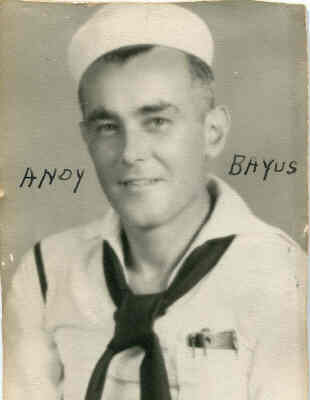
gave this short analysis of his first day in the service:
“You ought to see the haircut they give you here in camp. You get on the chair and in 10 seconds you are out.”
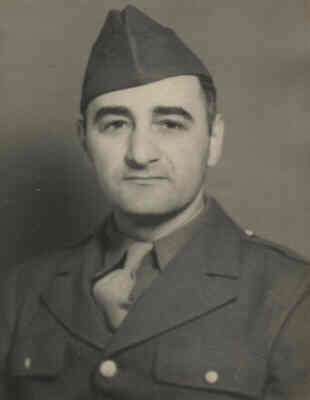
“Tony, this is a tough life for an old man like me. About 95% of the boys here average about 22 years of age. … We had our first 10 mile hike today. This is all sand country, you know how hard walking in sand is … We had a full pack, gas-mask, and rifle. Quite a load, but I managed to get back. My feet hurt like hell. Well that's part of the game. Well Tony I have to get some sleep now, 6:30 AM gets here very early.”
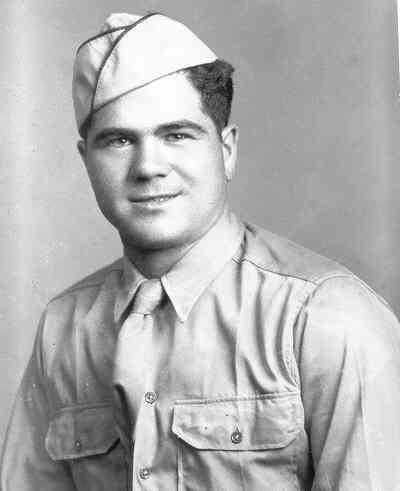
“Darn I am sweating like hell while writing - all there is here is sand and some cactus plants.”
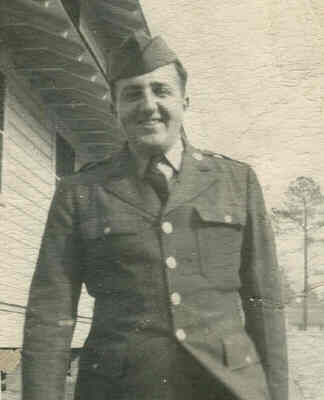
“Life here is at a standstill, we are getting nowhere in a hurry. Rumor has it that we will move east but that is just a rumor, remember that.”
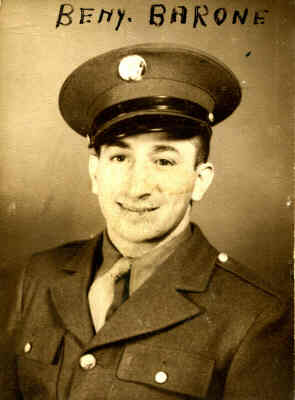
“This army life is not so bad after you get used to it, but it is pretty tough at the start.”
When the Raritan guys moved out of boot camp and into the real battle
the comments they made from overseas were much more positive and patriotic.
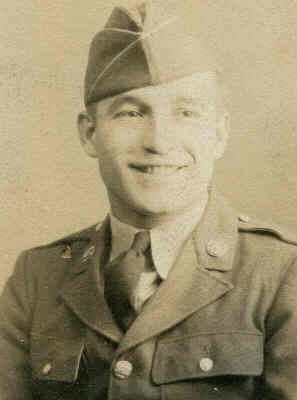
“Well Tony baseball season is just around the corner and I guess I will miss it again this year…. I had to hang up my suit just like the other boys did, and play a bigger game. This is one game I am going to win by a big score, a game for Freedom, and we won't lose.”
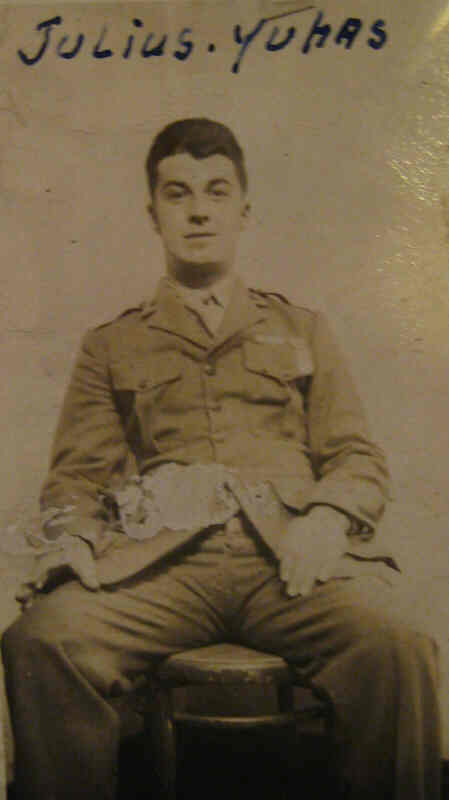
“Mr. Orlando this is a good place for young men in the U. S. Marine Corp because it really makes a good man out of you. I'll have some pictures made of myself when I get home and I'll give you one for the frame.”
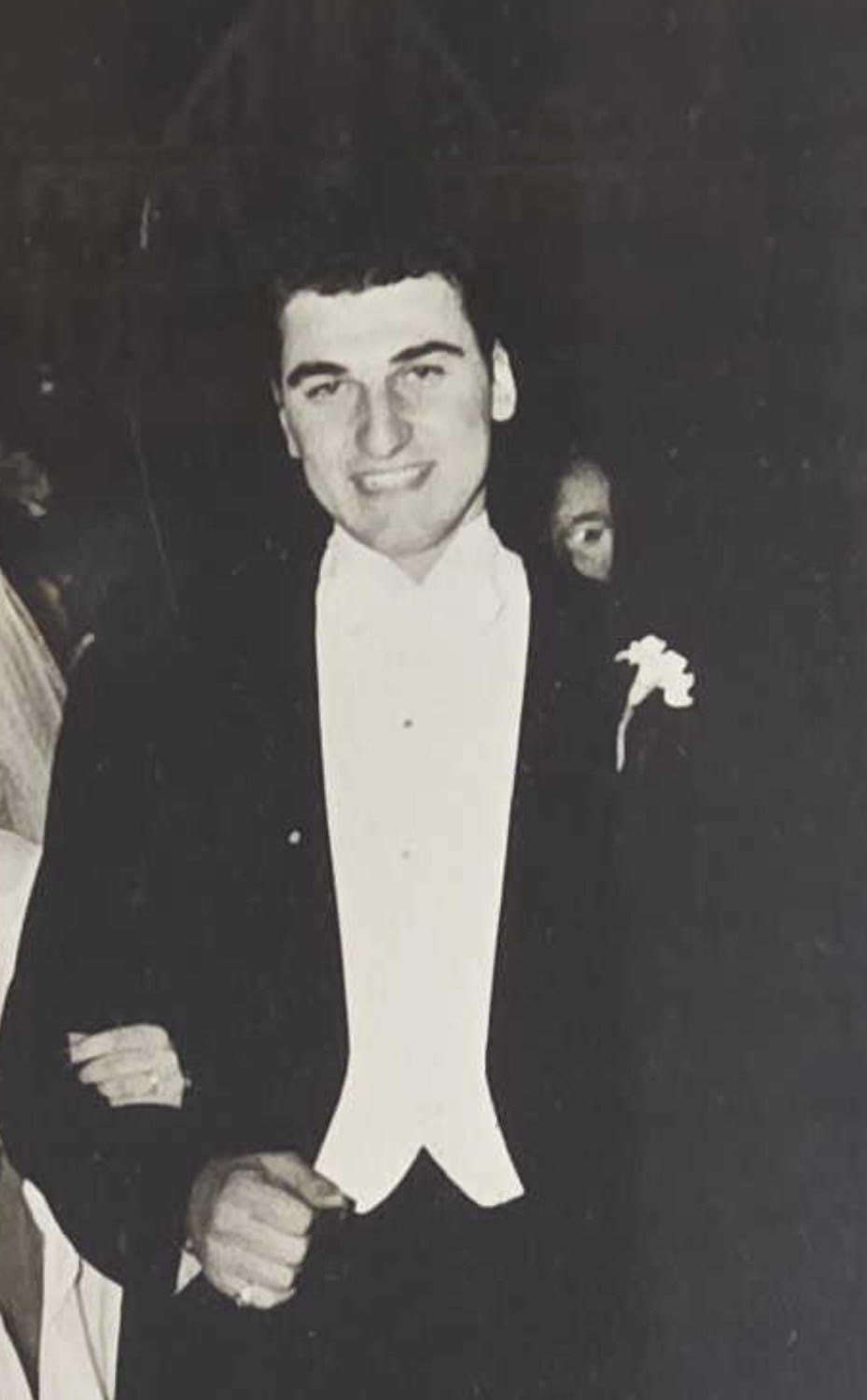
“Uncle Tony I don't profess to be a good soldier, for I am not, but I am proud inside to see officers and men about me who are. Men who can take 100 miles of this jungle territory and not get lost, men who are afraid of nothing, but not seeing their folks again.”
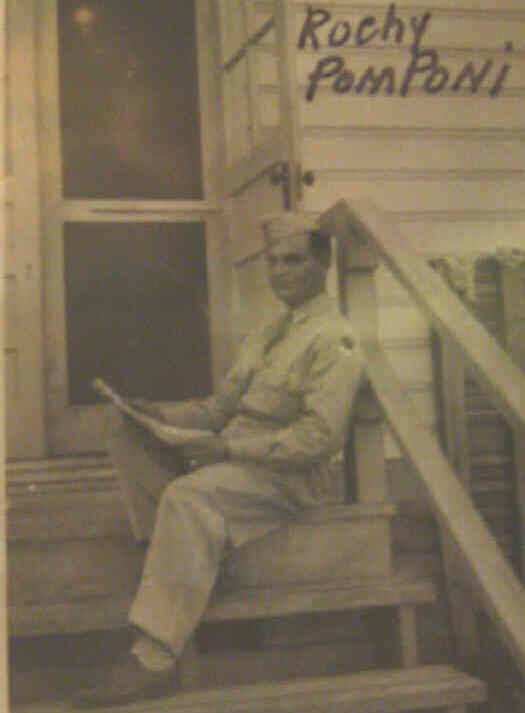
“Well Tony everything by me is fine, working like hell but I don't mind. It is for a good cause.”
As they fought their way across Europe toward Germany the soldiers witnessed the devastation caused by war.
They wrote home to Tony Orlando about this.
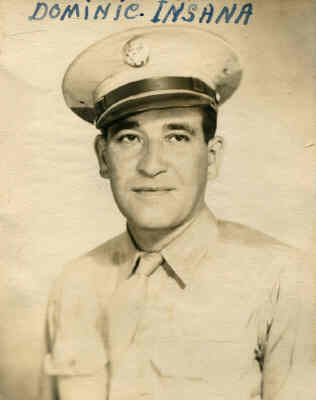
“Well here I am in France and it sure is a dreary place, most of the town is all shot to pieces, all you can see is buildings blown down and the streets are all full of stones, dirt, and bricks. Everywhere you look you see nothing but destruction … it is pretty hard on the people who live here.”

“Went to the town that was here and it’s all shot up - nothing left but the walls of the buildings. Then went to the cemetery where they buried the boys that were killed here and you should see how nice they have it laid out.”
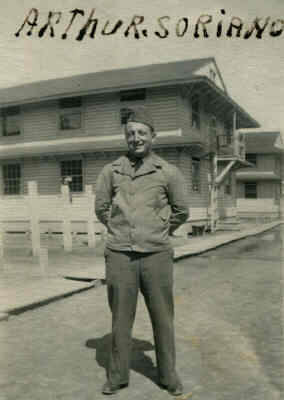
“I spent xmas at sea and New Years in France … and now somewhere in Belgium. They have sure messed up plenty of villages … most of the places we went through got a taste of war. “ As they moved closer to Germany Art Soriano commented again in February 1945 about the destruction, he wanted to tell more, but he knew he would not get it past the military censors who read every letter: “I could write more often, but … what I wanted to write they would censor out, so there is no use trying. We recently moved to Germany, all places look the same to me, all banged up and deserted.”
“This thing called war is really an awful state of things. Tony there are not many who can know what I mean, who have not been in it. It's really lousy.”
“Every town we have gone through so far is nothing but side walls and a few sticks left in the roof, and if it don't end pretty soon the whole German nation will be living in pup tents.”
Before the Allied invasion of France, which is today known as D-Day, the censors were somewhat lenient
as the pending massive invasion was no secret as it was the main topic of all news reports.
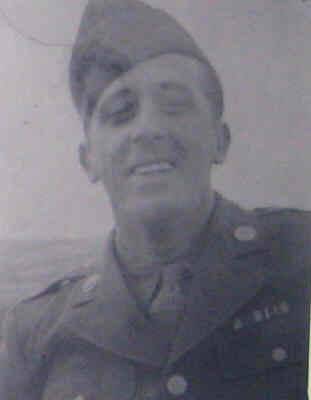
“As you know by reading the papers that the biggest show on earth will take place sometime in the near future. I expect to be in that show.”
Just 13 days later another letter from Frank Zanetti dated June 15th, 1944 (9 days after the D-Day invasion) showed that indeed he was in “the biggest show on earth”. This letter gave some idea of what he had seen and been through:
“Well Tony it has finally started and I am in it. There is very little I can say about it right now. I will say that I know now what war is like. I have had several experiences. I have seen ruins which are caused by war and needlessly to say I have seen the dead. In spite of everything Tony it hasn't been too bad for me so far. Am getting used to sleeping on the ground and with my clothes on.”
After D-Day the Allies fought on towards Paris liberating the city. Frank Zanetti was one of the soldiers who went through Paris soon after the U.S. Army had liberated the city away from the Germans. He wrote about the reaction that the French had to the arrival of the Americans:
“Passed through Paris about 2 weeks ago. Boy sure is a nice place. … The people there are sure glad to see us. They would swarm all over you shaking your hand and kissing. And the girls are pretty too.”
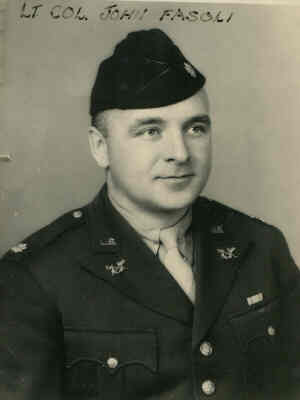
“Paris today is a dull dead lifeless city. The people have no ambition and are lazy as hell. Prices are crazy - $1.50 for a drink of Cognac; the people pay $25 for a pair of wooden shoes. Of course we live and deal only at Army centers, so we are not affected as long as we leave the French market alone - and we do.”
In 1943 many of the Raritan guys expressed their pride in Basilone being from their hometown.
They were also thrilled by the large welcome home parade that was held for Basilone in September of 1943.

“Well Tony it's sure nice to have a soldier like Basilone that comes from Raritan. He sure put Raritan on top. I hope that we could all do as much and get this war over with. I wish I was at home to see it all. I bet it was a beautiful parade. I also get The Raritan Valley News and I sure got a thrill out of reading all about Basilone.”
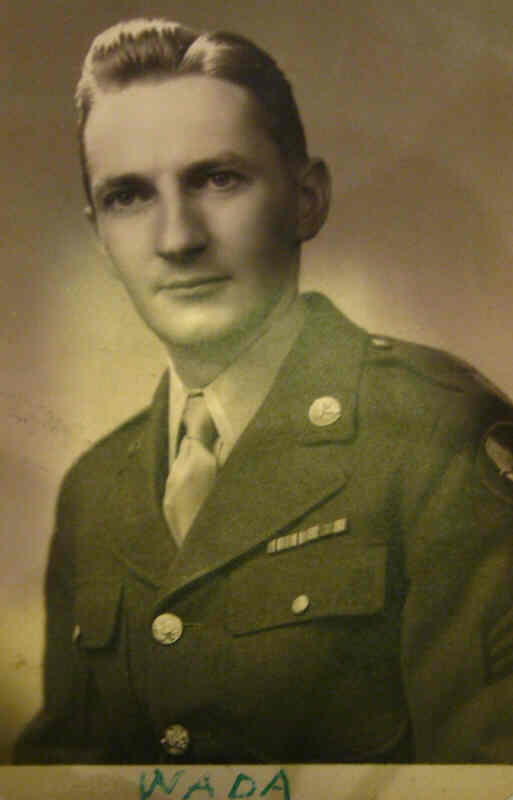
Stanley Waida (119 W. Somerset St.) wrote:
“I see by the papers and also in the Life Magazine about Raritan's hero Johnny Basilone. My hats off to him and the many others like him in this war. He sure did a wonderful job.”
“I read about the Basilone fellow in The Raritan Valley News. I know he deserves plenty of credit because I know what he was up against, out here, and it makes me feel glad to know we both came from the same town.”
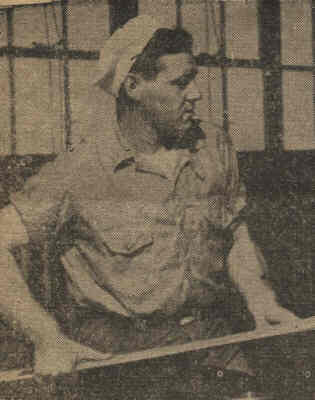
“I guess all of the fellows who left Raritan have heard of Johnny Basilone where ever they may be. It's really something to brag about down here. He's a great guy.”
Frank Kelly (11 Gaston Ave.) in March of 1945 started a letter with a line that sounded like he might be on vacation:
“The island I am now on is not so bad.”
But his second sentence brought in the reality of war:
“There are still quite a few japs left and some hard fighting ahead. They have some pretty good equipment and are still full of fight.”
He closed his letter off by using a phase which would just be an expression in peace time, but was all too accurate when he wrote:
“Well Tony it's almost dark and lights have to go out, so it's back to my hole for the night.”
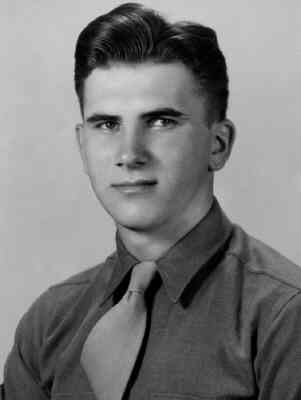
The letter is dated April 18th, 1945, he expressed hope to avoid any more combat:
“I did see a little action and I hope I don’t see any more.”
However, that wish did not come true as just three days later he was injured when his tank was hit. He would wake up in the hospital two weeks later. Sixty-Three years later in 2008 Angelo Bernabe would serve as Grand Marshall of the Basilone Parade.
Another topic that filled the pages of the letters sent home from overseas was the Raritan guys who were killed in the war.
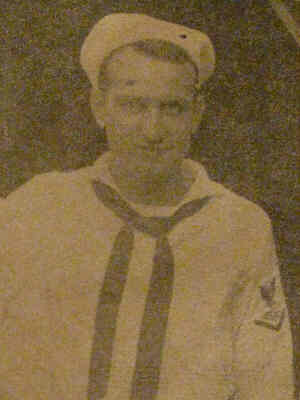
“I got a letter from my sister saying that Joseph Spatt of Gaston Ave. was killed in action. I was very sorry to hear that. He was only 19 years old too. That makes the 13th one killed in Raritan. That's a lot for a small town like Raritan. I wish this damn war would end soon.”
“My wife wrote and told me that Joe Lamastro is missing in action. I was very sorry to here that. He was out here with me, but I never got a chance to see him. It's a shame because he had a wife and kid.” (Joe Sian served as the Grand Marshall of The Basilone Parade in 2009)
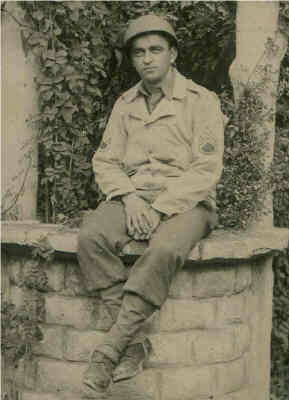
“Well I went up in a plane just a week ago hoping to take some pictures of Peter Petras grave but we couldn't land since the strip was out of operation for two months and the pilot didn't feel like taking a chance so we did some cruising for nearly 3 hours.”
While Anthony Musz initially could not get the picture of Peter Petras grave, a letter written two months later shows that he did succeed in getting to the grave site with a camera. “I sure would like to hear from that Petras family as to how they like those pictures for I still have time to make another trip down to the cemetery before I leave but I'm still carrying the negatives so that they can be reproduced when I bring them home with me.”
“I get the Raritan Valley News and The Somerset Gazette. It sort of keeps you posted on all the things at home. I was very sorry to read about the Raritan boys that were killed in action. I can understand how their family feels, so Tony lets all of us get on our knees and pray to God to end this terrible war so that no more of our boys will be lost.”
After John Basilone was killed on February 19th, 1945, the Raritan guys expressed their feelings to Tony Orlando.
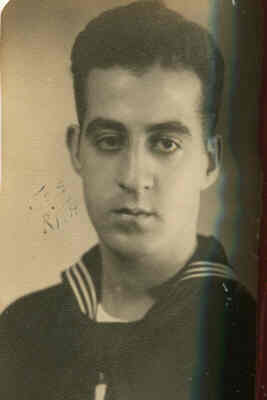
“Johnny Basilone's death came as quite a shock. He had plenty of guts and went out as a great champion. They don't come any tougher.”

“Well Tony I'm very sorry to hear the bad news about John Basilone. But God may help him and guide the rest of us. And also to make this war come to an end very soon.”
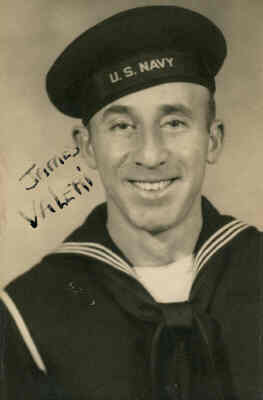
“Mrs. Fox said George Basilone was down there for a few days. I went down to see him. In the afternoon we sat around and talked. George told me all about how Johnny was killed. He was only a short distance away, but it was days before he knew anything about it. Some of the other boys knew it, but were afraid to tell him. The kid looks pretty good for one who has been through so much.”
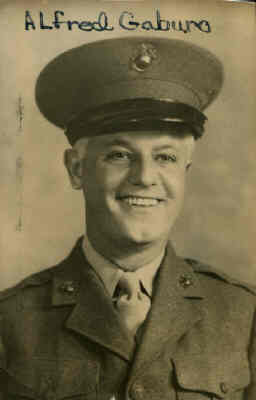
“He will live forever.”
The Raritan soldiers overseas expressed their true thanks to Tony Orlando for the packages and letters they received

“I am very happy to hear of you forming the Raritan Victory Club for us. You said the club was started with ten members and now you have one hundred and ten members. That’s really wonderful. And God bless you, no one will ever forget you because you really doing your share for the boys in the service.”
In another letter, Rocco said he wanted to do something special for Tony:
“’I’d like to thank you again for all you are doing for the boys. And just for that I'm going to kill a Jap for you.
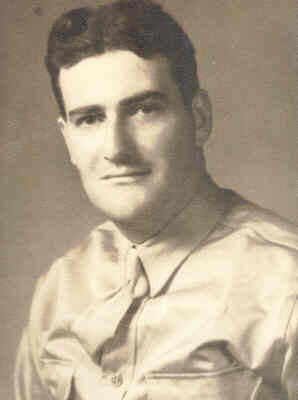
“Yesterday at mail call, I was handed a package. I had not requested a package … so you can realize my surprise when the mail clerk handed me this one. I want to therefore thank you at this time for your thoughtfulness to us men in the service.”

“Many thanks for the card, letter, and Christmas Package. I assure you all three are deeply appreciated. I realize how busy you are writing to the boys from town who are now fighting in all corners of the globe. They realize it too, and will never forget it.”

“My two friends Moses and Stan haven't stopped talking of the nice treatment they got in Raritan. They say you have a swell place and that you, Joe, and Al are great fellows. They knew all about the Orlando family before coming to Raritan. It didn’t take them long to find out how swell you are the moment they met you. We sure appreciate everything. Thanks a million.”
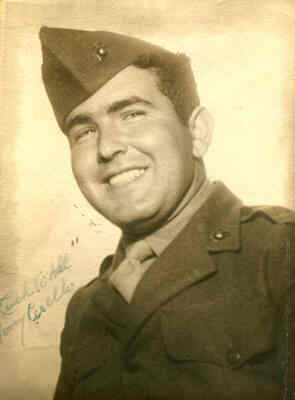
“Basilone sends his regards to all in town and especially to you Tony. He told me that you are doing a great job and to keep it up. Tony the fellows in the service will never forget you and all the things you done for them, they will always worship you as if you were a father to them.”

“I received the swell package you sent me and I can't express in words my appreciation… It isn't only the package that made me feel good, but the feeling behind it. I know you people home are really doing your part and take it from me, you are doing a swell job.”
“Just a few lines to let you know that I received your Christmas Package. It was an unexpected surprise, but most welcome. I don't know just who you are but your thoughtfulness is appreciated.”
The walls at Tony Orlando’s place, The Centennial Tavern, had hundreds of photographs of the Raritan servicemen on it. This wall was a local landmark which took on a special level of significance in Raritan and in the minds of the Raritan guys fighting overseas. Photos of the wall appeared in the local newspapers. Every Raritan guy serving his country was proud to have his picture on Tony’s wall. However, getting a photo taken while in the military was not that easy in the 1940s as the following quotes from letters demonstrate:

“About that picture you want of me. I can not get it up here as when we go to town the stores are closed.” But he eventually succeeded writing to Tony: “I sent my picture home and my sister will give you one as soon as they arrive … I only had six of them made.”
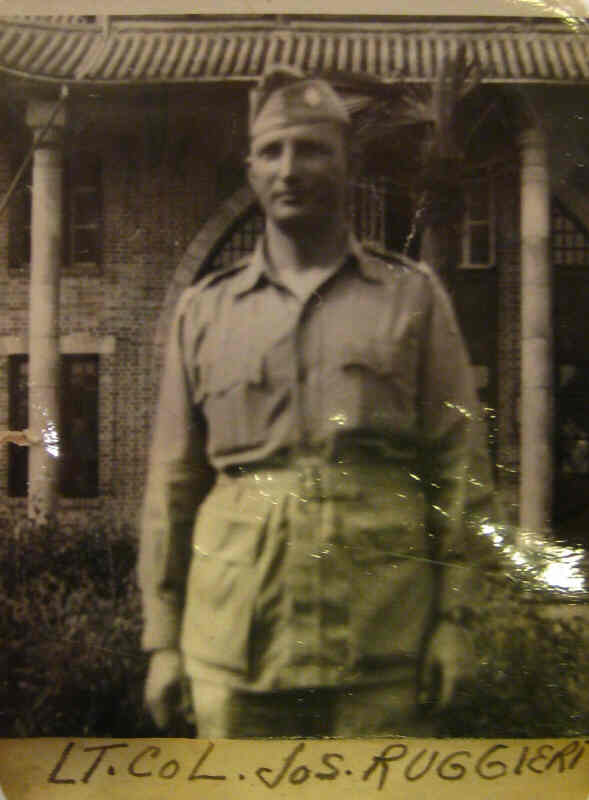
“I was surprised to find out how many photographs you have obtained of local boys now serving in the armed forces. Your collection is tremendously large and it must be completely gratifying to you.”
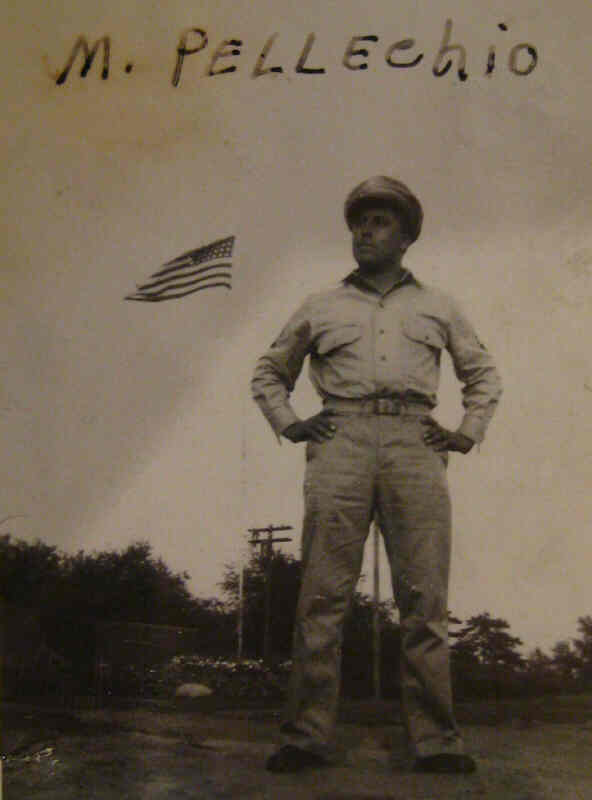
“I guess I told you about the picture on the wall at your place. I didn't quite like it, as it was taken while I was a rookie at camp. This new photo I am sending you isn't so hot, but I think it is just a little better than the last.”

“I was happy to see all the pictures you have in your place. That’s really something to be proud of. You are the only guy in Raritan who could think of something like that. Everybody will remember you.”
“I just found out that you have my picture on your famous wall as I just got word from my girl as she was in your place Christmas night for a drink.”
“I will send a picture of myself as soon as I can. They don't allow cameras in camp.”
Many glimpses of war life can be seen in the following few excerpts.
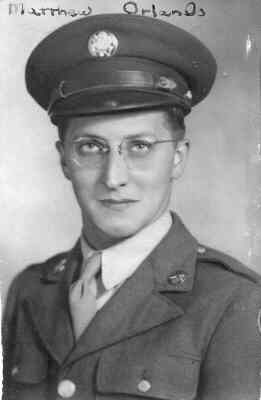
“I am now living in a house. It is really a swell break for us. I expect to take a shower in a couple days. I haven't showered in a couple of months.”

“Things sure are rough here for we sleep with only two blankets, get only four packs of smokes a week and seldom get toothpaste.”
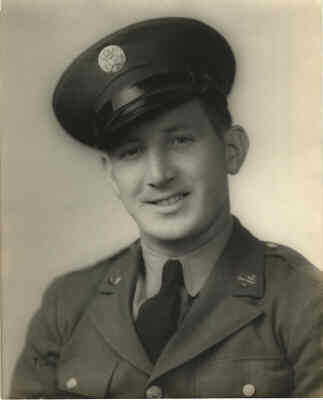
who was with the U.S. Army that had liberated a war ravaged Belgium told of how grateful the local people were.
“We are in Belgium. The people are very good to us. What little they have they are willing to share with the soldiers.”

“Well Tony they got me now in the Philippines. I have been here a few months and I saw enough of it.”
“Our food consists of rations now, but we hope to get better food soon. Those rations are alright for a few days, but after that, they are terrible.”
One never knew how much he appreciated his home town until he was away from it for an extended period of time.

"I'm a married man now, also I am back overseas. Tony Cirello is also down here with me. It sure is nice to have someone from your home town with you. We just got back from seeing a movie together. Well how is everything back in Raritan – Okay? Tony and I are now waiting for Al Gaburo to get down here with us."

“Tony its Sunday afternoon and I could just picture the boys at The Centennial. Some busy at the bar, others playing cards, some playing shuffle board, and some just hanging around. I often think about that for it does bring back pleasant memories. However, I am anticipating that this war shall end in the very near future so that I may again join the gang.”
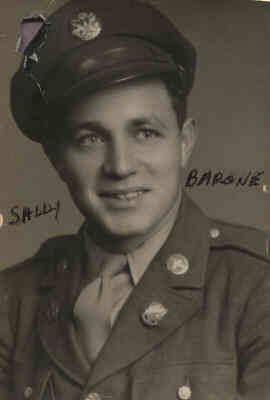
“Someday I and the rest of the boys will be back in the old town and enjoy what we are now fighting for.”
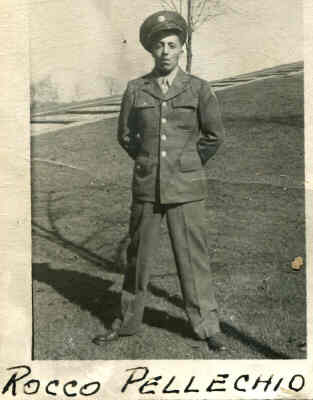
“No matter where a fellow goes or what he does there is no better town than the one he has come from, be it big or small.”

“It is nice to know people back home are doing their part to end this war putting out production.”
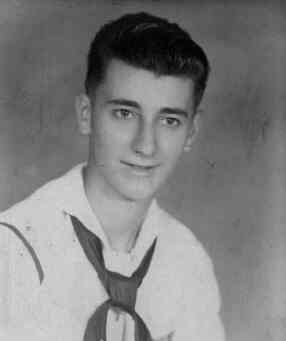
“The Raritan boys are well represented out here and we are really giving them hell. I hope and pray that it will soon be over so we can all get back home and all the boys get together and really have a good time.” (Michael DeCicco, is one of just two letter writers in this collection that are known to be alive today. In 1941, Michael had been at Pearl Harbor on the day of the famous attack. In 2005, he was the Grand Marshall of The John Basilone Parade)
“I sure miss all the fellows and the town, the more of this world I see, the more I appreciate Raritan.”
I often tell the boys in my company of what a nice little town Raritan is and of the Raritan River where I had a lot of fun when I was a boy. It is a swell town and I hope to be back there soon.”
Some organizations such as the USO and army baseball teams toured to entertain the troops. These groups often consisted of celebrities.
Many Raritan guys got to see the stars of that era. They would write home about them.
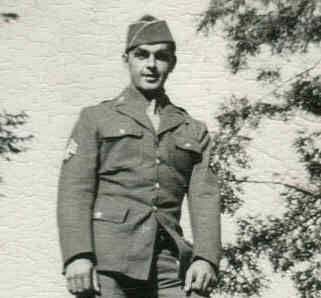
“Saw Bob Hope and his troops at the USO show and he really is a good comedian - one who can make us all laugh for he pulls his jokes just as fast as one can laugh .. He sure is a scream.”

“Joe DiMaggio is here playing ball with the Army Air Force and I intend to see him play the next game. He played today and according to the radio announcer he hit a home run in the ninth inning and it was the longest homerun ever hit.”

“Saw a good USO show a few days ago and had a bird's eye view of the show since I was on stage behind curtains - had a nice chat with the dames between acts.”
Christmas had a special meaning during World War II. Being away from home was more difficult during the Holidays.
Many Raritan servicemen expressed the feeling about this in their letters to Tony Orlando.

“Well another Christmas came and is gone and the war isn't coming to an end … This is my third Christmas that I have spent away from home, and it looks very much like I'll be in the army for a fourth. I sure hope not.”

“The holidays are just like any other day. … I have no time to play. We are doing our part to end this war as soon as possible.”
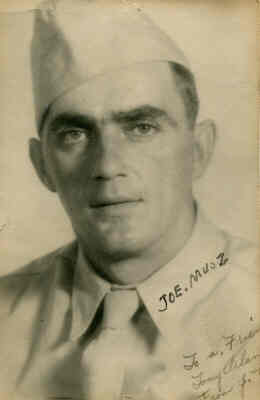
“Say Tony that Christmas Tree did look fine, I have sent the picture to my brother Tony in Belgium. I just took one look at the tree and I knew where it came from.”
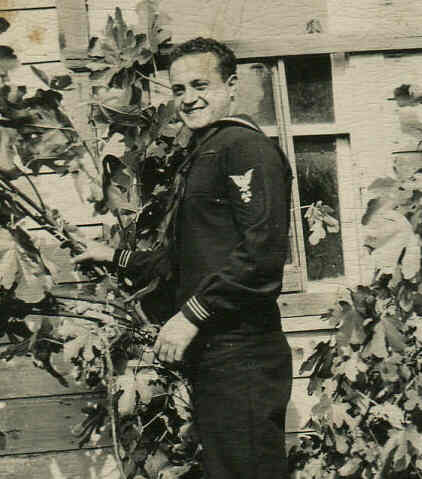
” It’s a darn nice tree. I'd like to have been there. I'm sending it to my brother Jim. I guess he will send it to Joe.”

“Thanks for the pictures of the bar room and grill room, also the picture of the Christmas tree. I showed them to all my buddies and they thought lots of them.”
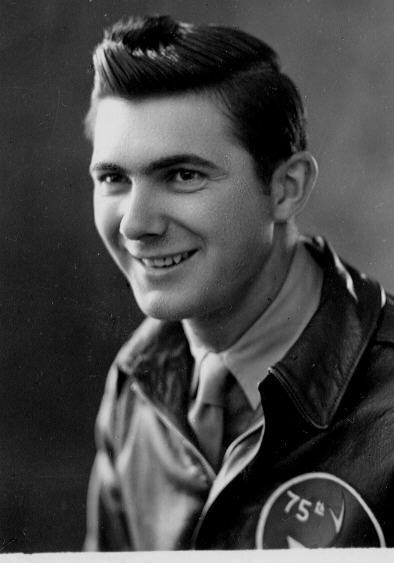
“The picture of the xmas tree you had in your place was really swell.”
On May 8th, 1945 Germany Surrendered. While it was a cause for celebration, the battle was not fully over as Japan continued to fight on.
Several of the Raritan servicemen wrote about it:

“V-E Day was officially announced today, but no one here got very excited about it because we know that there is a hard, long struggle before all of us. We will have to wait until Japan is done before we celebrate. … If Japan is wise she will see that theirs is a hopeless case and perhaps she will surrender. From now on we can all expect to be busy out here because no doubt there won't be any time wasted getting men and material out here to finish the job. “

“Guess you are all celebrating the VE- Day, it’s sure something to celebrate but, here all us boys took the news calmly. We had a few bottles of French wine so we killed that. ... Sure wish I was home for the occasion. Too bad the Pacific is still going on.”

“Well Tony the Germans really go for wine, we sure found plenty of wine they had put away for their V-E Day, but it happen to be just vice versa. They kept it for us and now us GIs are really going to town on it. And it’s good too.”

“I hope and pray that we might get some help from the other nations - especially England and Russia. Receiving help from them would help shorten the war and at the same time remove a portion of our burden. But it appears as though it is our war and that we alone must see it through. It will and shall be done. The nips are taking a terrible pounding by air and losing ground consistently. How much longer can they hold out? They know, as well as us, that victory for us is eminent. Yet they hate and fear shame.”
“I guess it was sure one happy day for you when the war was over in Germany. But to tell you the truth, no one here seemed to be excited one bit. There was quite a difference between the president dying and the war being over. Everyone talked about what a great guy we lost, but hardly anything was said about Germany falling.”
When the Japanese surrendered on August 14th, 1945, it marked the end of World War II. The town of Raritan had a big spontaneous celebration. News of this celebration was sent to the guys overseas in letters. They wrote back their thoughts about the party in Raritan and the war’s end.

“To us it meant that the horrors of war were a thing of the past. We received the news with a great deal of happiness. We celebrated by cheering and singing. Most of us went to the chapel and gave thanks to the lord. It meant that we would no longer have to trust our luck. It meant we would soon be returned to our loved ones.
From the reports that I get, I rather surmised that you boys had a hell of a good time upon hearing of Japan's surrender. Your letter to me was self-explanatory. I could readily see that you were one happy person … I was happy to note that you made your promise good Tony. I well remember the day when you told me the very words that "your place would be open to everyone when final victory came!" I do admire you for your sincerity … I could just picture the gang parading the streets of Raritan, drunker than hell. I'll bet they even brought their bottles along with them. Lucky Stiffs.”
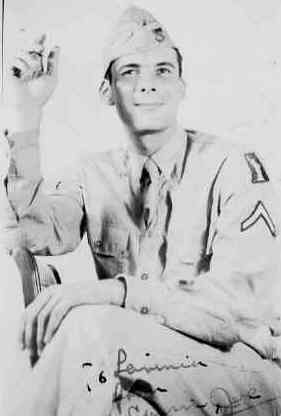
“My folks told me of the wild celebration that took place in town when the official announcement of the war's end was made known. It really must have been something from out of this world with the cheering and noise that filled the air.”

“Many people went wild when the war ended and I think all the boys who fought this war feel the same way … we have to enjoy peace as best we can. I got a good load on by drinking Champagne from France.”
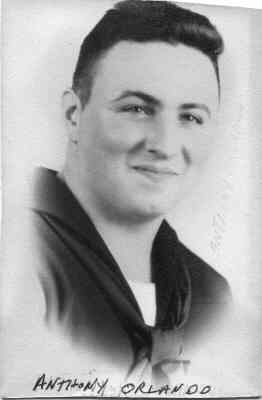
“Very glad to hear you had a swell time celebrating V-J day. I know what it means to you and Mom and everyone home … When V-J day came we just acted as if it was another day... everyone here is waiting to get home to celebrate.”
if anyone has a military photo (or regular photo) of any of the following guys:
Frank Kelly, Henry Matties, Jack Torpey, John Kraly, Mike Troisi, John Baglioni, John Gabinelli, or Fred Lapinsky
Please email to brucedoorly@gmail.com or call Bruce Doorly at (908) 581-1917



